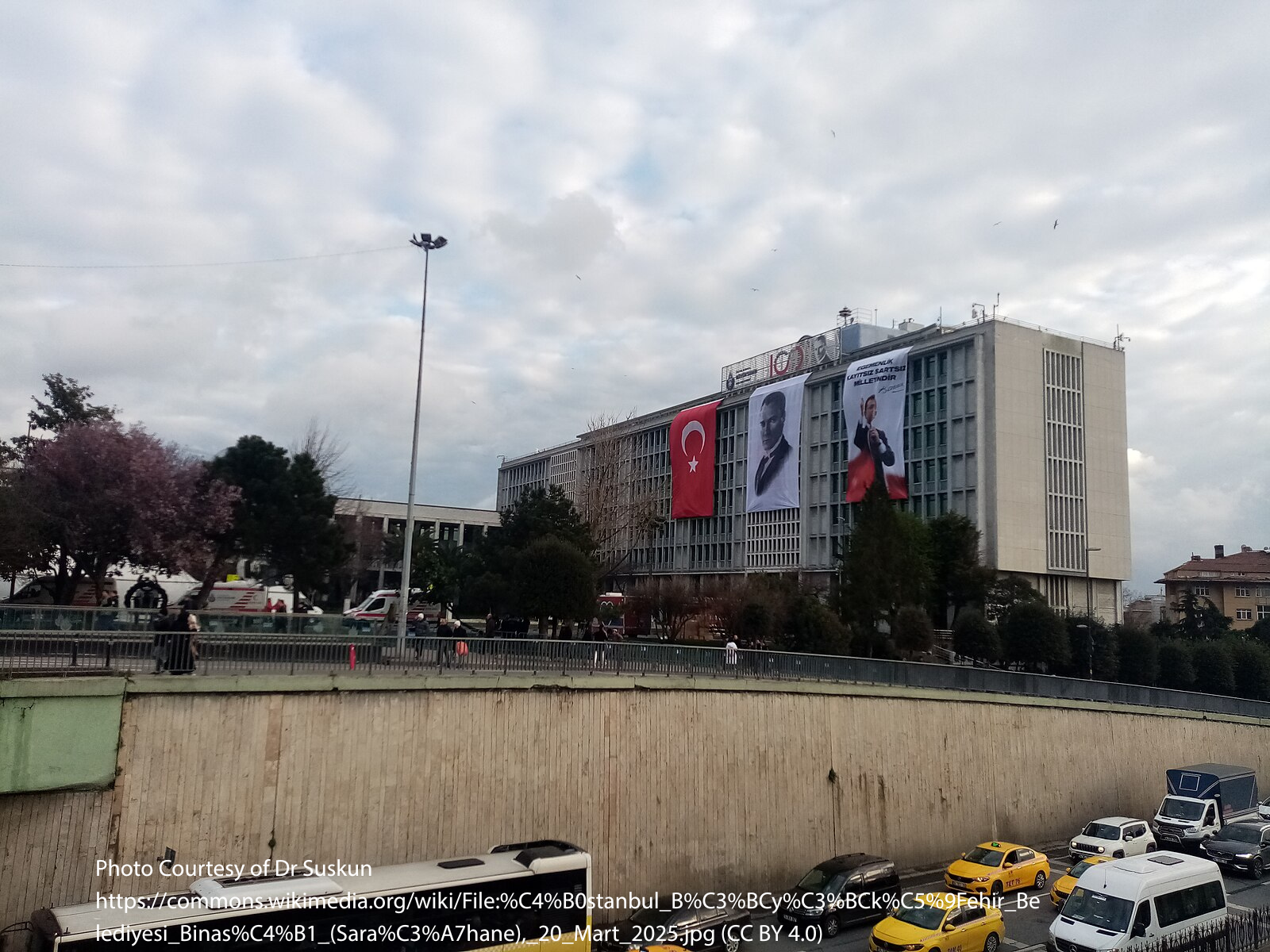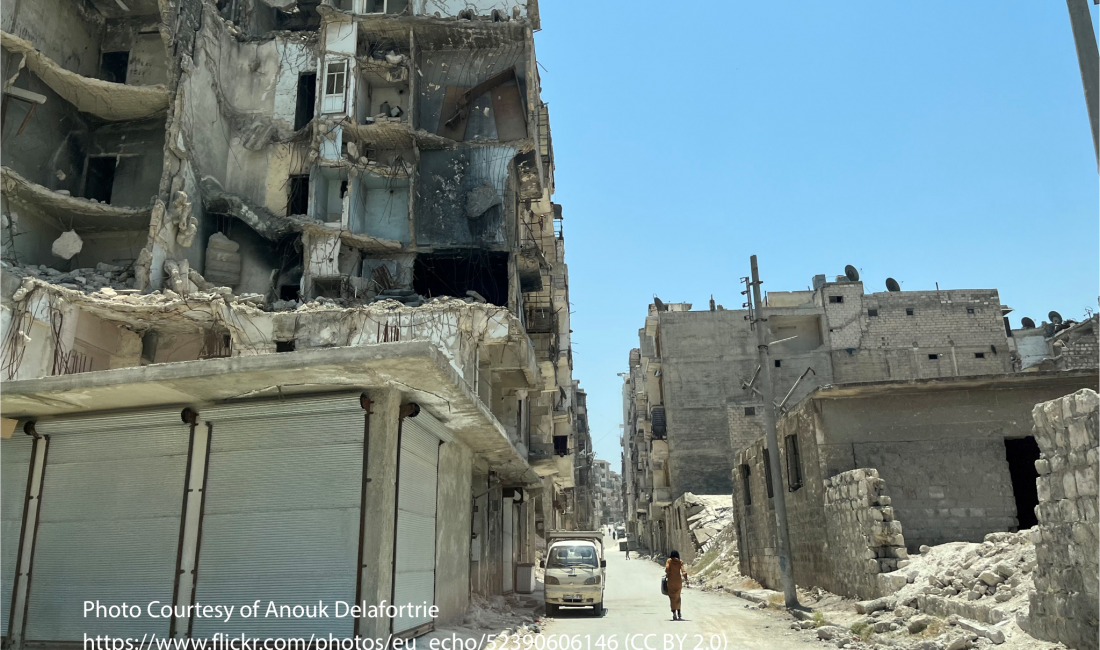Attacks by authoritarian national governments on their own cities aren't just local conflicts. They constitute a global war.
Co-published with Zócalo Public Square.
I was scheduled to visit Ukraine this week, but didn’t have to make the trip. Because the same war I would have observed there had already come to my hometown of Los Angeles.
World War III is well underway. Contrary to popular belief, this war is not a global contest between hegemons or even between alliances of nations.
World War III consists of near-constant assaults by violent and authoritarian national governments on cities, usually their own, for the crime of governing themselves differently than autocrats might like. Such attacks are a feature of dozens of armed conflicts around the globe.
To Americans, the Trump administration’s lawless attacks on Los Angeles might seem shocking. We are not accustomed to the federal government ignoring the law to send thousands of troops to police Americans. We’ve never heard a president authorize roving bands of masked and unidentified federal stormtroopers to arrest anyone who looks like an immigrant. Nor have we experienced federal administrations seeking to imprison elected local leaders who are their political opponents.
But if you look around the planet, this Battle of Los Angeles will appear familiar.
World War III's hottest spot may be Turkey, where autocratic President Recep Tayyip Erdogan has been sacking local governments. Last fall, he replaced the elected mayors of Batman, Mardin, and Halfeti, all in Kurdish-majority regions, with his own cronies.
This spring, the war came to Istanbul, with the arrests of the popular mayor Ekrem Imamoglu, senior staff of the Istanbul Metropolitan Municipality, city district leaders, municipal contractors, and thousands of residents who protested these arrests.
Imamoglu faces trumped-up charges of corruption. But the mayor’s real crime was defeating Erdogan’s party in three municipal elections and governing so well that he was leading Erdogan in presidential polls. Istanbul is suffering for its success, with Erdogan’s decapitation of municipal leadership now disrupting local services, with the city “effectively rendered inoperable,” according to senior lawmaker Gokhan Gunaydin.
In this, Turkey embodies a global dynamic. National governments fail to resolve their people’s problems, big and small. To remain in power, they turn to authoritarianism, ruling through fear, and sowing political conflict. And they ignore the work of governance—maintaining infrastructure, running trains, delivering healthcare—which increasingly falls to local leaders.
You might think that national regimes would thank localities that step up and take on governance responsibilities. But it’s a mean world, and national authoritarians instead attack their most successful and independent cities—from Istanbul to Los Angeles and New York City.
That’s why the destruction of Aleppo was the essential battle of the now-deposed Syrian dictatorship’s civil war. Previously the country’s most populous, wealthy, and intellectually and culturally distinguished city, Aleppo was thus a threat to the Assad regime.
Then there’s Russia’s war in Ukraine—Europe’s largest country, which Vladimir Putin insists belongs to him. Ukraine’s democratic gains, and vastly improved local governance, provoked Putin’s war. In battle, the Russian regime has been most destructive in successful Russian-speaking cities in Ukraine’s east, most notably Mariupol, a major steel producer, port city, and education center.
Ethiopia’s government, in its civil war with the Tigray region, has focused violence on the city of Mekelle, an independent-minded and rapidly growing cultural and economic center. The Myanmar junta has repeatedly bombed its gloriously beautiful second city, Mandalay, the former capital of the Burmese monarchy. Israel’s authoritarian government, in laying waste to Palestinian communities, has destroyed successful local governments across Gaza, and also in Lebanon.
Even in countries that are not at war, conflicts between authoritarian regimes and self-governing cities are ugly.
Hungary’s strongman ruler Viktor Orban frequently targets the government and economy of his country’s capital city, Budapest. Orban’s assaults are mostly financial—including a June 4 decree that lowers the local business taxes for Orban allies, a tax cut that would destroy the local budget. The national government has also increased the “solidarity tax” that Budapest pays to fund poorer municipalities and has illegally seized money from city accounts.
Effectively, Hungary is bankrupting Budapest, much as Trump has threatened to bankrupt Los Angeles and other U.S. cities by blocking federal funds. Orban, said Budapest Mayor Gergely Karacsony, “want[s] to push the city to the brink of an abyss. The political intention to paralyze the capital’s operations is obvious.”
Authoritarian nation-states are more frequently detaining local leaders, often under the pretext of fighting corruption. Allies of India’s authoritarian-nationalist leader, Narendra Modi, a champion of local governance when he was a state governor, last year revoked the autonomy of Muslim-majority Jammu and Kashmir and dissolved its local assembly. Modi’s allies also jailed and then forced out Delhi’s longtime chief minister, Arvind Kejriwal.
“We have to save this country from dictatorship,” Kejriwal said after his detention last year.
Indonesia’s new president, Prabowo Subianto, has accelerated a practice of replacing local leaders with military officials. Prabowo also proposes to end local elections and bars his country’s future capital, Nusantara, from having its own local government.
For some regimes, destroying local self-governance is not enough. China, after dismantling Hong Kong’s self-rule, is hunting Hong Kong officials and activists wherever they have fled. (China also has spent decades systematically destroying self-governing local communities in Tibet and Xinjiang.)
Nation-states also fuel overseas civil wars that destroy cities; the worst example is the Sudanese capital of Khartoum, now a ruin via a civil war involving Egypt, Saudi Arabia, the United Arab Emirates, Ethiopia, Eritrea, South Sudan, Russia, China, and Turkey.
In the U.S., the World War rages not just in California. Florida’s authoritarian governor has removed local officials, and Texas’ right-wing government routinely cancels the democratic decision-making of its cities. Not to mention the MAGA-inspired assassination of locally elected state representatives in Minnesota.
Do besieged cities have any chance of defeating the authoritarian nation-states that scapegoat and oppress them?
Yes. But it won’t be easy. It would require the residents of targeted localities, via technology-enabled collaborations and mutual aid, to transform their hometowns into stronger, higher-capacity city-states.
Before that can happen, the people protesting the mayor’s jailing in Istanbul, dodging bombs in Mandalay, or battling secret federal police in L.A. must make common cause.





